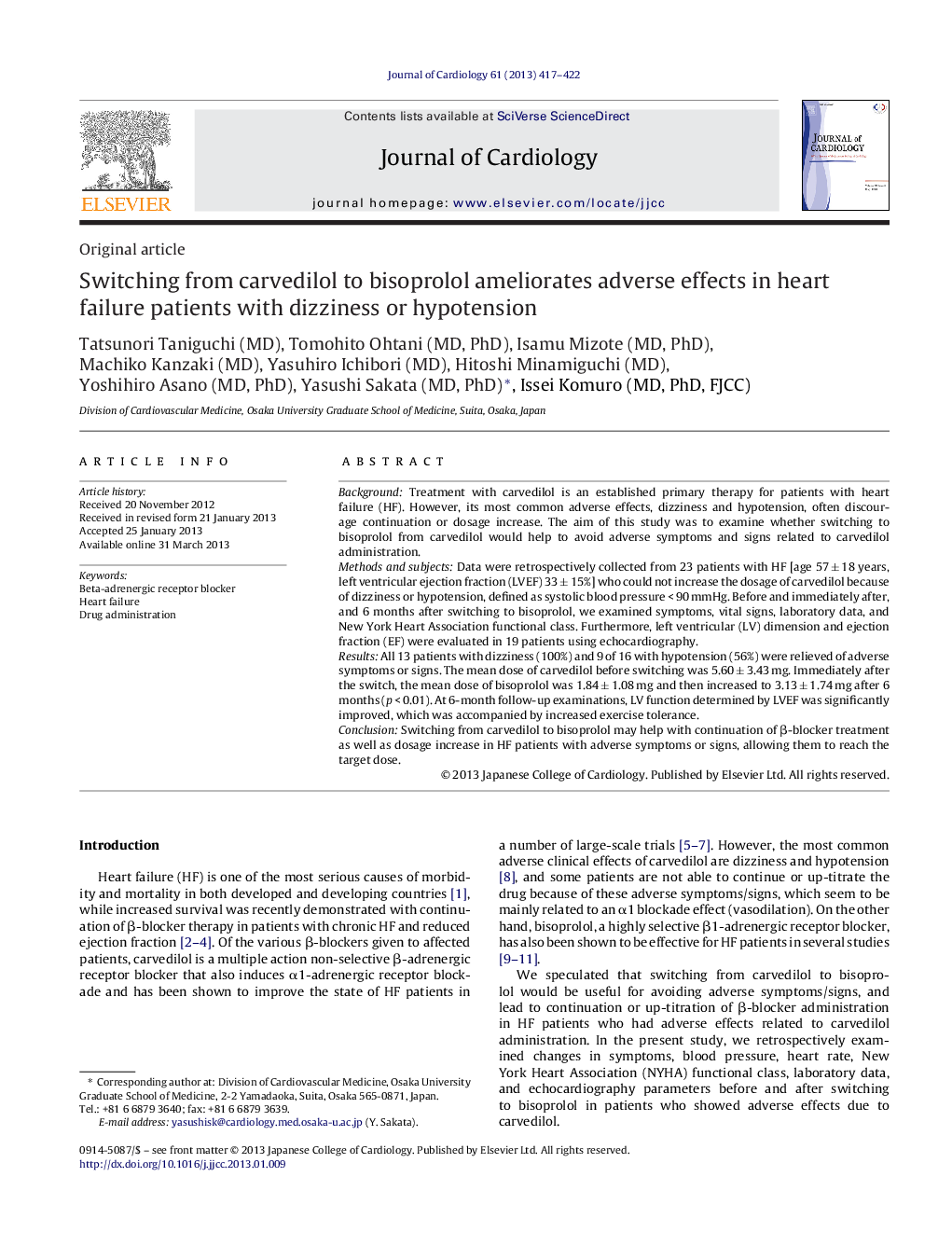| Article ID | Journal | Published Year | Pages | File Type |
|---|---|---|---|---|
| 5984335 | Journal of Cardiology | 2013 | 6 Pages |
BackgroundTreatment with carvedilol is an established primary therapy for patients with heart failure (HF). However, its most common adverse effects, dizziness and hypotension, often discourage continuation or dosage increase. The aim of this study was to examine whether switching to bisoprolol from carvedilol would help to avoid adverse symptoms and signs related to carvedilol administration.Methods and subjectsData were retrospectively collected from 23 patients with HF [age 57 ± 18 years, left ventricular ejection fraction (LVEF) 33 ± 15%] who could not increase the dosage of carvedilol because of dizziness or hypotension, defined as systolic blood pressure < 90 mmHg. Before and immediately after, and 6 months after switching to bisoprolol, we examined symptoms, vital signs, laboratory data, and New York Heart Association functional class. Furthermore, left ventricular (LV) dimension and ejection fraction (EF) were evaluated in 19 patients using echocardiography.ResultsAll 13 patients with dizziness (100%) and 9 of 16 with hypotension (56%) were relieved of adverse symptoms or signs. The mean dose of carvedilol before switching was 5.60 ± 3.43 mg. Immediately after the switch, the mean dose of bisoprolol was 1.84 ± 1.08 mg and then increased to 3.13 ± 1.74 mg after 6 months (p < 0.01). At 6-month follow-up examinations, LV function determined by LVEF was significantly improved, which was accompanied by increased exercise tolerance.ConclusionSwitching from carvedilol to bisoprolol may help with continuation of β-blocker treatment as well as dosage increase in HF patients with adverse symptoms or signs, allowing them to reach the target dose.
